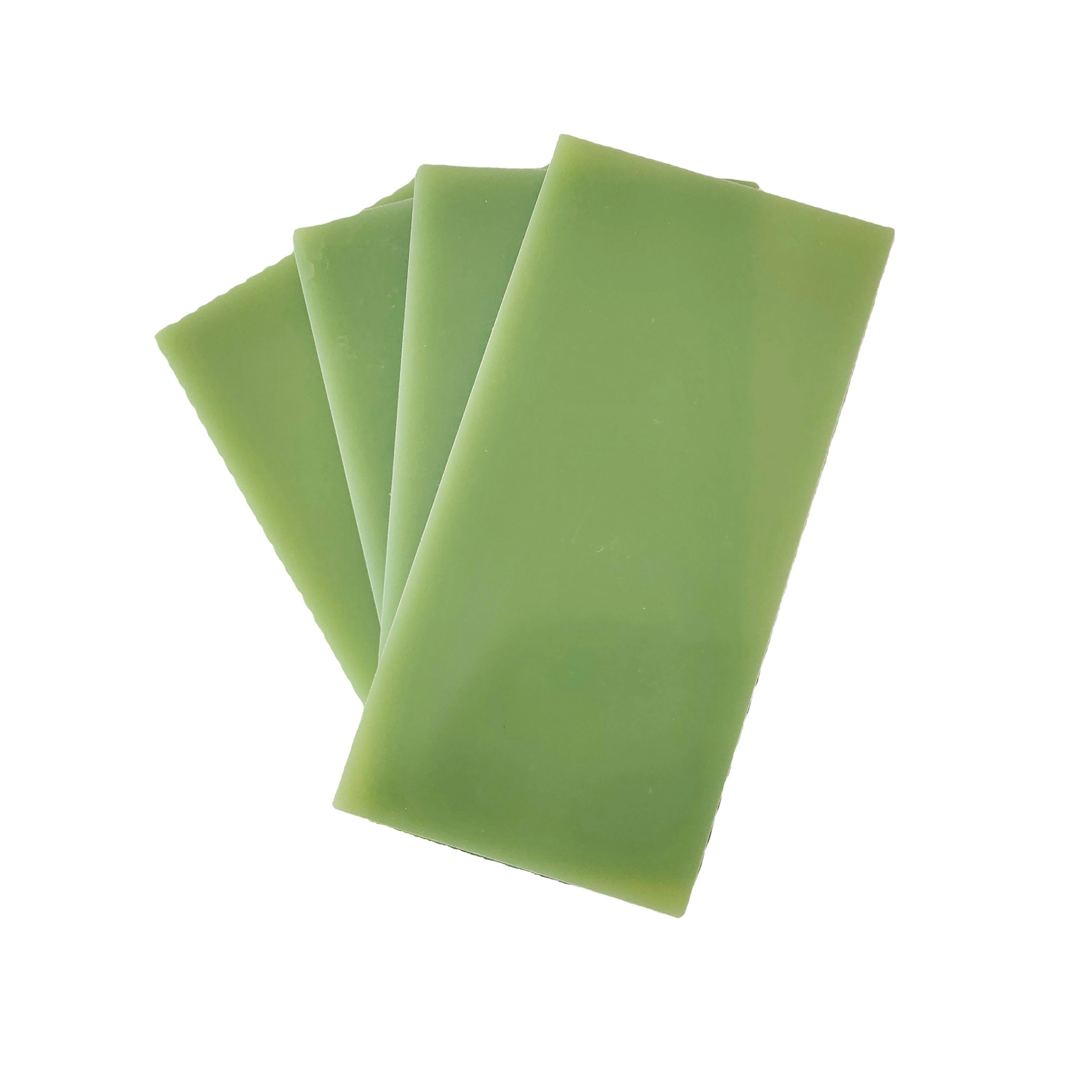Can an Epoxy Resin Sheet be used for electrical insulation?
2024-05-16 10:53:22
Introduction to Epoxy Resin Sheets
Epoxy resin sheets represent a revolutionary advancement in material science, offering a multitude of applications across industries due to their exceptional properties and versatility. As a composite material composed of epoxy resin and reinforcing fibers, sheets have garnered widespread acclaim for their durability, strength, chemical resistance, and adaptability to diverse manufacturing processes.
In this introductory section, we embark on a journey to unravel the unique characteristics and applications of epoxy sheets, shedding light on their significance in modern engineering and industrial practices.
Epoxy sheets serve as a cornerstone in various industries, ranging from aerospace and automotive to construction and electronics. Their inherent properties make them invaluable for structural reinforcement, protective coatings, electrical insulation, and more. From lightweight components in aircraft to robust structural elements in buildings, epoxy sheets find application in a myriad of scenarios where reliability, performance, and longevity are paramount.
Furthermore, the versatility of the sheets extends beyond their mechanical properties to encompass design flexibility and customization options.Whether molded, covered, or cast, these sheets can be custom fitted to meet particular prerequisites, permitting for complex plans, complex geometries, and exact tolerances. The reason of this article is to dig into the complexities of epoxy tar sheets, investigating their composition, properties, fabricating forms, and applications. By looking at their preferences, confinements, and rising patterns, we point to give a comprehensive understanding of their part in forming the future of fabric designing and mechanical innovation. Join us as we unwind the puzzles of epoxy tar sheets and reveal their transformative potential in a wide extend of businesses and applications. From aviation designing to shopper hardware, these flexible materials are balanced to revolutionize the way we plan, make, and utilize items in the 21st century.

Properties of TheSheets
One of the standout features of sheets, such as the G10 and FR4 grades, is their impressive electrical insulating properties. These materials are crafted from woven fiberglass cloth combined with an epoxy resin binder, forming a composite that is both strong and resistant to electrical currents. This makes them an ideal choice for use in electrical and electronic applications, from circuit boards to insulators in electrical devices (Atlas Fibre) (Atlas Fibre).
Applications in Electrical Insulation
Transformer and Generator Insulation: The sheets are commonly used as insulation materials in transformers and generators. They provide a robust barrier between conducting elements, preventing electrical arcing and ensuring efficient energy transmission. The high dielectric strength of sheets makes them ideal for withstanding high voltages, maintaining insulation integrity, and enhancing the safety and reliability of electrical equipment.
Printed Circuit Boards (PCBs): In the electronics industry, sheets are indispensable for fabricating printed circuit boards (PCBs). They serve as substrate materials for mounting electronic components and creating electrical pathways. The sheets offer excellent adhesion properties, allowing for secure bonding of copper traces and components, as well as superior insulation to prevent short circuits and signal interference. Additionally, their dimensional stability and heat resistance contribute to the longevity and performance of PCBs in various electronic devices and systems.
Electrical Enclosures and Insulators:The sheets are widely utilized in the manufacture of electrical enclosures and insulators. These sheets provide a protective barrier around electrical components, shielding them from environmental factors such as moisture, dust, and contaminants. By encapsulating sensitive electronics within sheets, manufacturers ensure the safety and longevity of electrical devices in challenging operating conditions. Moreover, the sheets offer thermal insulation properties, helping to dissipate heat and maintain optimal operating temperatures within electrical enclosures.
High-Voltage Insulation Systems: Epoxy resin sheets are integral components of high-voltage insulation systems used in power distribution networks and electrical substations. Their ability to withstand extreme voltages and harsh environmental conditions makes them indispensable for insulating busbars, switchgear, and other high-voltage components. Epoxy sheets provide reliable insulation against electrical arcing, corona discharge, and tracking, safeguarding personnel and equipment from potential hazards and ensuring uninterrupted power transmission.
Coil Winding and Potting:The sheets are employed in coil winding and potting applications to encapsulate and insulate wire coils, transformers, and solenoids. By impregnating coils with epoxy resin, manufacturers enhance mechanical strength, electrical insulation, and resistance to moisture and vibration. This process helps to extend the lifespan of electrical components and improve performance in demanding environments such as automotive ignition systems, industrial motors, and renewable energy systems.
Comparison with Other Insulating Materials
While sheets offer many advantages, it's important to compare them with other insulating materials. Materials such as silicone rubber or polyester resin also find use in electrical insulation, each with its own set of properties that may be more suitable depending on the application. Epoxy sheets tend to excel in environments that require durability and high tensile strength, whereas other materials might be chosen for flexibility or cost-effectiveness (MDPI) (SpringerOpen).
Customization and Machining of Epoxy Sheets
Epoxy sheets can be tailored to meet specific application needs. They are available in various forms including full sheets, rods, and custom shapes. Machining epoxy requires specific tools and techniques due to its abrasive nature and potential chemical reactivity with certain tool materials. Effective machining practices are crucial to preserve the mechanical integrity and insulating properties of the finished product (Atlas Fibre) (RS Online).
Conclusion and Contact Information
As a professional manufacturer and supplier, we specialize in producing high-quality Epoxy resin sheets suitable for a wide range of applications, including electrical insulation. Our GMP-certified factory ensures top-quality products with large stock availability and comprehensive certifications. We support OEM, offer quick delivery, and ensure rigorous packaging and support for inspections. Contact us for reliable, high-performance insulation solutions tailored to your needs.







